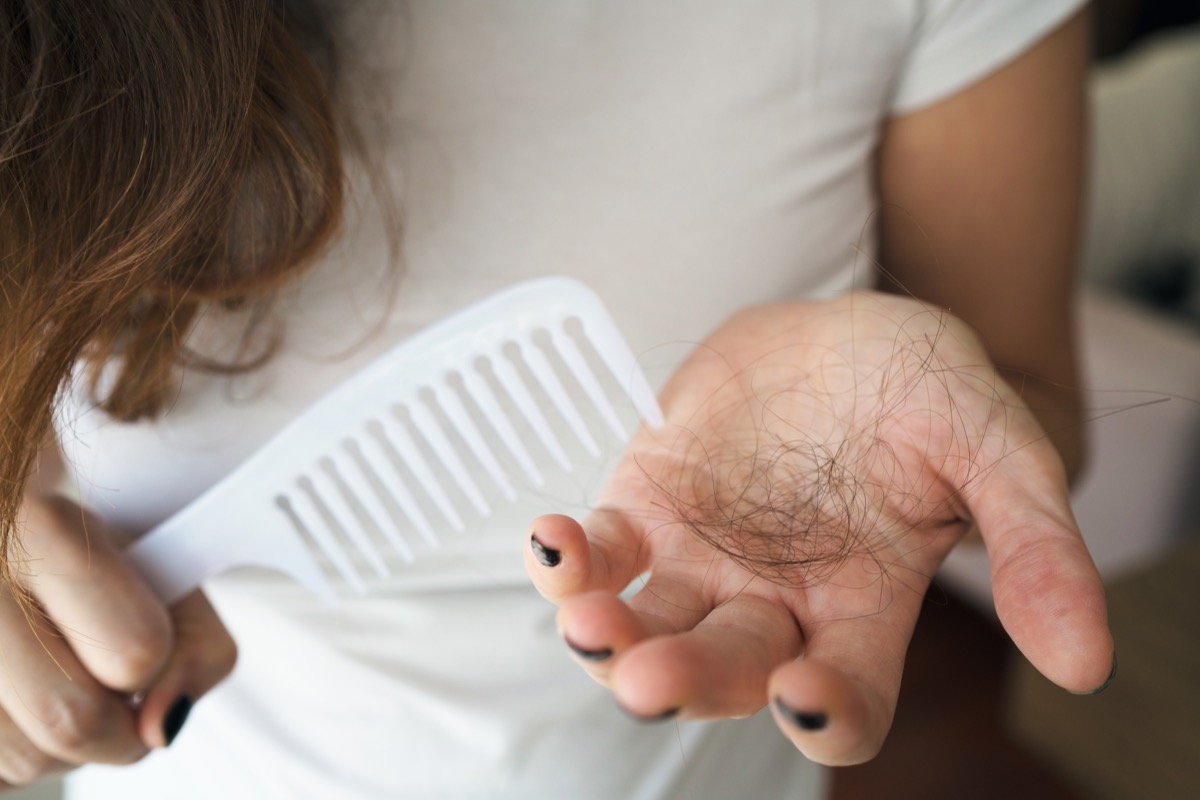“I started noticing gobs of hair coming out when I took a shower. At first I thought it was that I was using a cheaper shampoo, but it soon became obvious, as more and more came out, that this was something else,” travel nurse Juli Fisher, a travel nurse who had been caring for coronavirus patients in an assisted facility when she was infected in March, told WebMD. And she isn’t the only one who has experienced the unexpected symptom. Fisher joined a Facebook group called “Long Haulers,” a forum for COVID-19 patients with persisting coronavirus symptoms to discuss lingering issues, quickly realizing others were noticing hair loss as well. “When I saw others had it, I realized, oh, this is COVID-related, too,” she recalled. Another woman in the group said she had been experiencing coronavirus symptoms for more than 100 days—hair loss being one of them.ae0fcc31ae342fd3a1346ebb1f342fcb But why hadn’t the symptom been acknowledged until recently? Sara Hogan, MD, a health sciences clinical instructor at the David Geffen School of Medicine at UCLA, told WebMD it’s because hair loss typically takes three to five months to happen after a serious illness or stressful event. “There are three common cycles in hair’s life cycle,” Hogan explained. “Up to 90 percent at any time are growing, 5 percent are in a resting phase, and up to 10 percent are shedding. When you have a major stress event or shock, up to 50 percent of your hair can sprint ahead to the shedding phase.” RELATED: For more up-to-date information, sign up for our daily newsletter. Experts say this coronavirus hair loss phenomenon is akin to telogen effluvium (TE), a form of temporary hair loss that typically arises after stress, shock, or a traumatic event. According to WebMD, it can be caused by “stress, high fever, illness or weight loss of more than 20 pounds,” which are typical symptoms that appear in COVID-19 patients, as well. However, it may be even more noticeable with the annual “spring shed” season. “Some people do shed more hair in the spring, and we don’t exactly know why,” Hogan said. “Some think it’s related to a natural, seasonal cycle, and others think it emerges several months after the stress of the winter holidays.” But now, she’s seeing new coronavirus patients who are experiencing unusual bouts of hair loss. “People are getting sick, losing jobs, and dealing with a lot of uncertainty related to their income and well-being, and I knew that [hair loss] was going to be significant,” she said. “And [now] we’re in the time frame for that with regard to the pandemic.” And for more side effects of COVID, check out the 4 Coronavirus Symptoms Most Likely to Be Deadly.
